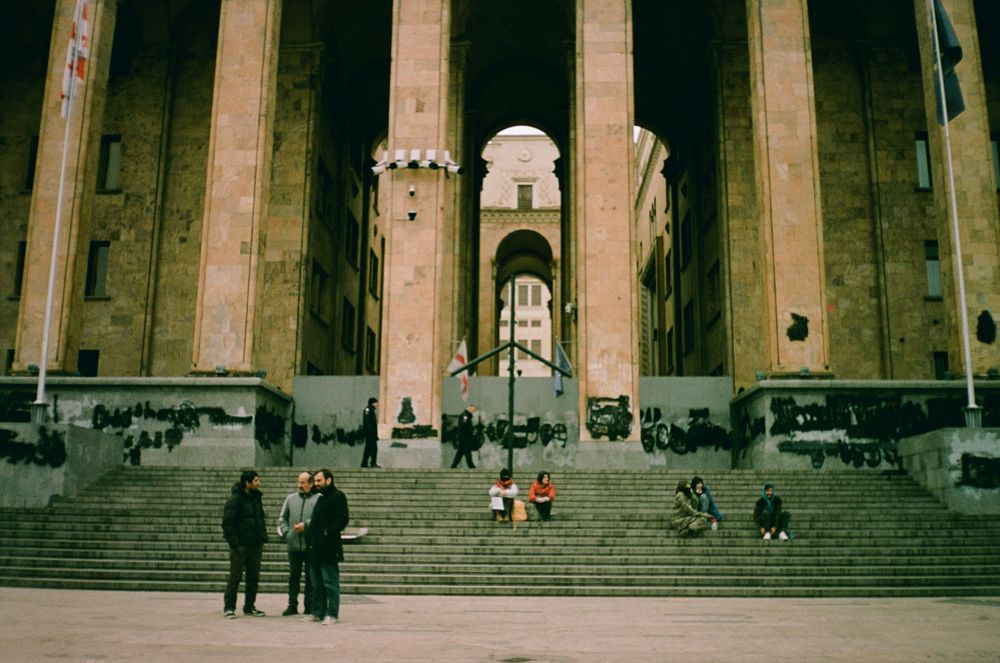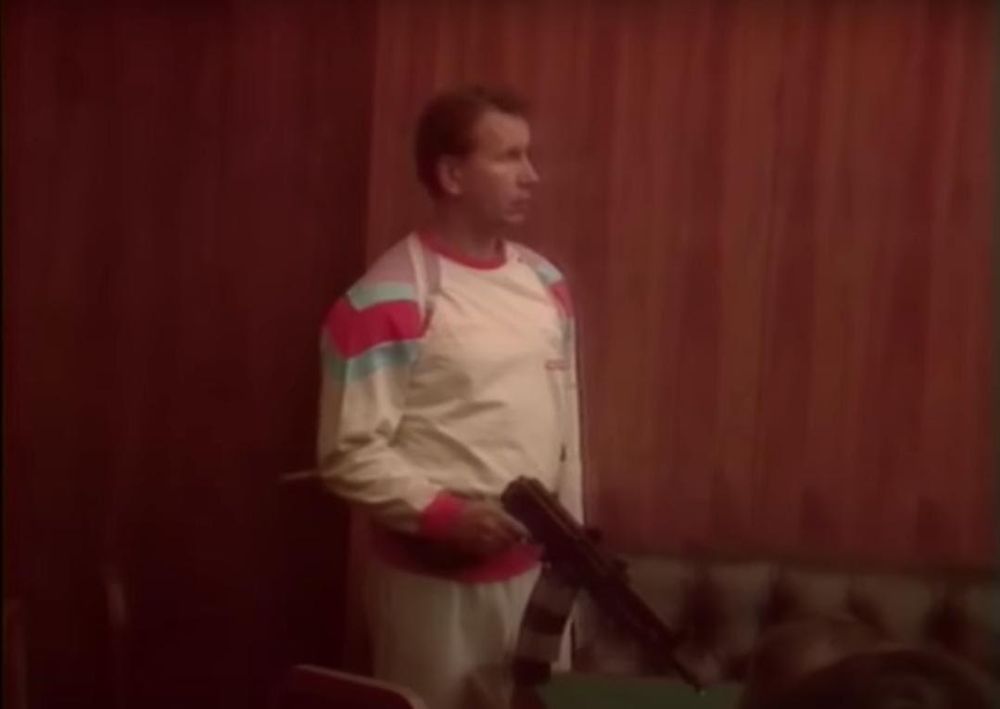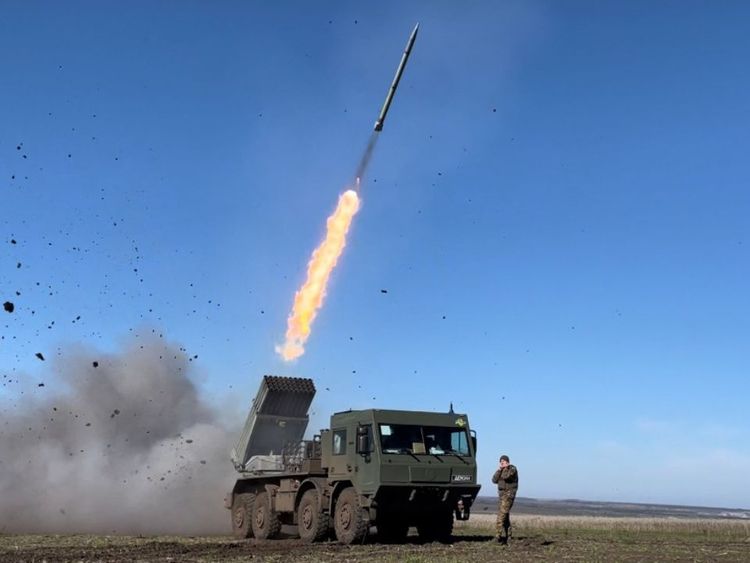Publications for tag «Politics»

One of the defining images of this war is… a pipeline. No matter the ongoing death and destruction, no matter the evermore persistent calls for an embargo on Russian fossil fuels (including from Russian and Ukrainian climate activists), oil and gas just keep flowing.

The BRICS have a very contradictory image: some fear or pin a lot of hopes on them as a rising hegemonic alliance, a champion of the Global South, while others are much more sceptical, arguing that the interests of their core members are too contradictory for the BRICS to act as a unified entity in global politics. But does the BRICS really represent the Global South? And how do they compare as an institute of non-hegemonic internationalism to the Third World organisations that defined the 20th century, such as the Non-Aligned Movement and the Group of 77?

For several years now, the Georgian protests have been attracting international attention. From March 2023 to the end of 2024, people took to the streets every day, despite police violence and criminal prosecution. Georgians opposed laws modeled on Russian legislation, challenged the re-election of the ruling Georgian Dream party, and protested against the rejection of European integration. Journalist Sasha Fokina spoke with Georgian left-wing activists, who described the state of civil society after the protests.

How did the ‘democrats’ understand democracy? On the example of the formation of Moscow’s government
Last year, Alexei Navalny initiated a discussion about the role of the 1990s era in the formation of the modern Russian regime. This debate was eagerly supported by the majority of the Russian left, for whom it became an opportunity to remind once again about the undemocratic nature of the formula of democracy as the power of 'democrats'. Nevertheless, questions about the design of the political system of post-Soviet Russia often remain in the background of this discussion. Alexander Zamyatin shows how the political struggle between the "democrats" and the Mossovet on the eve of the first Moscow mayoral elections in 1991 laid the foundations of the system of power in Russia - from plebiscites to the power vertical.

Murad Gattal spoke to Azerbaijani trade unionists and left-wing activists about the state of society following Ilham Aliyev’s election for the fifth presidential term and the Third Karabakh War. The rise of authoritarian tendencies and nationalist rallying around the flag that followed in the aftermath of the ‘small victorious war’ brings up questions about the future, and even existence, of the left movement in the country.

In July 2023, the international left-wing community was shaken by the news of the imprisonment of Boris Kagarlitsky on the factitious charges of “justifying terrorism”, a code word for his staunch anti-war position. Karaglitsky, the well-known post-Soviet public intellectual, who was previously imprisoned under Brezhnev and Yeltzin, was abducted in Moscow and brought to Syktyvkar, 1,300 kilometers to the north of Russia’s capital. The aim was to isolate Kagarlitsky and cut him off support of his comrades. However, a strong international solidarity campaign led to the sociologist’s release back in December. Now, with his case reopened, Kagarlitsky who refuses to leave Russia as a matter of principle faces five years in prison. September Collective publishes this letter, which Boris wrote from behind bars, to call for reopening of the solidarity campaign for his immediate release with renewed vigor. Freedom to Boris Kagarlitsky and all political prisoners in Russia!

Last August, Alexei Navany published a text, in which he strongly criticised those who, in his opinion, ‘sold, drank, wasted the historic chance which our country had in the early 90s’ - including Boris Yeltsin, ministers of ‘state reform’, and other well-known figures from the post-Soviet Russian elite. This statement, unsurprisingly, led to another round of discussion about the 90s.

A huge scandal in Canadian politics and a painful blow to Ukraine's reputation — these are the terms used by the media to describe how the Canadian parliament and the Ukrainian delegation headed by President Volodymyr Zelenskyy gave a standing ovation to Yaroslav Hunka, a veteran of the Waffen-SS division ‘Galicia’. But how come he was invited to the parliament? Who ‘framed’ Canada and Ukraine? Who gave such a ‘gift’ to Russian propaganda? The Speaker of Parliament, Anthony Rota, took political responsibility for this and resigned. However, it is hard to believe that Mr. Rota knew the SS veteran personally and dreamed of bringing him into the limelight for the whole country to watch. There was someone who came to him with this ‘brilliant’ idea. Let's find out who.

"September" met with mathematician and Russian left-wing politician Mikhail Lobanov to discuss his foreign agent status and his dismissal from the university. We also discussed the potential approaches to anti-war political organizing in Russia and beyond, and learned about Mikhail's plans for the "long-term political mission trip" he embarked on a month ago.

We live in historic times. Historians have long noted that in some periods time seems to thicken, and social contradictions which had previously unfolded gradually are now aggravated and can no longer find room for further coexistence. Current leaders might assure the masses that they are in control of the situation, but if the system goes haywire, this very attempt at mistimed control only worsens the conditions. Gigantic underlying processes are grinding at the superstructural mechanisms, and rulers do not realise the moment that in the long run will make them ex-rulers.

Murad Gattal on the causes and prerequisites for a new escalation in the Armenian-Azerbaijani conflict and the transformations that it caused in Azerbaijani society.

Ukraine aid, like the war itself, is a point of contention on the international left. Supporters see aid as essential for Ukraine’s defense against an imperialist invader. Skeptics regard it as a giveaway to the war industry at best, a fig leaf for the US empire at worst. The dilemma is that both sides have a point. Aid has enabled Ukraine to push back its occupier, but — funneled through the military-industrial complex of the United States — this success is bound up with both war profiteering and the maintenance of US hegemony. Supporters of aid, among whom I count myself, need to grapple with this ambiguity, which is indicative of the complex issues anti-imperialists will face as great power competition heats up in an increasingly multipolar world.

It appears that in recent days Russia has been labeled ‘neoliberal’ with increasing frequency. At the very least, this is surprising for the country, where the degree of the state’s involvement in the economy is as significant as it is in Russia and where the president publicly criticizes “neoliberalism.” Is it fair to discuss Russian neoliberalism? In our new text, we attempt to explore why the mainstream approach to the Russian political dynamics is often remote from reality (as, for instance, in the case of the view that the current President subjected “the oligarchs” to his own interests and deprived them of ability to influence politics), whereas the theoretical framework of neoliberalism can explain much about today’s Russia.

At the end of October, Arshak Makichyan, a climate activist and Fridays for Future participant, and three of his family members — his father and two of his brothers — were stripped of their Russian citizenship by court order. Russian citizenship was the only one they had; the family had moved to Russia from Armenia when Arshak was one year old. The court ruled that Russian passports had been issued to them illegitimately; in the case of the Makichyans, some documentation was missing, which the Ministry of Internal Affairs itself lost during their registration. In February 2022, Arshak had declared his anti-war position, and a month later left Russia. He is now sure that the decision of the court was caused by his civil position. September discussed with Arshak the significance of this precedent for activism in Russia and the connection between anti-war and environmental protest, as well as the COP27 summit, the strategy and tactics of the climate movement, and prospects for a green transition.

A recent post about Kyrgyzstan on Instagram by the popular Russian blogger Ilya Varlamov brought a wave of accusations of imperialism upon him. In this critique, the emphasis was on the boorish way the blogger expressed these statements, while the ideological form of Varlamov’s argument, the concept of a ‘service country’ went almost unnoticed. Let us puzzle out what is wrong with this concept and why it gives rise to such ridiculous statements.

September spoke with Baiel Isayev, a Marxist and member of the organization KYRGSOC, about the socio-economic problems in Kyrgyzstan, the structure of Kyrgyz society, the impact of the Russian-Ukraine war on the region, and attitudes towards the Soviet past.

Alexander Korchagin, a student activist, spoke to activists from several universities and told us about the current state of student anti-war activism in Russia.

September met with a municipal deputy of Moscow’s Zyuzino district and an author of For Democracy: Local Politics Against Depoliticization, Alexandr Zamyatin to discuss the reasons to take part in local elections in times of war, depoliticization in Russian and Western societies, and how to overcome it, VyDvizhenie — a support platform for independent candidates Zamyatin founded together with Mikhail Lobanov, — and on the recent transformations of Russian political regime.


